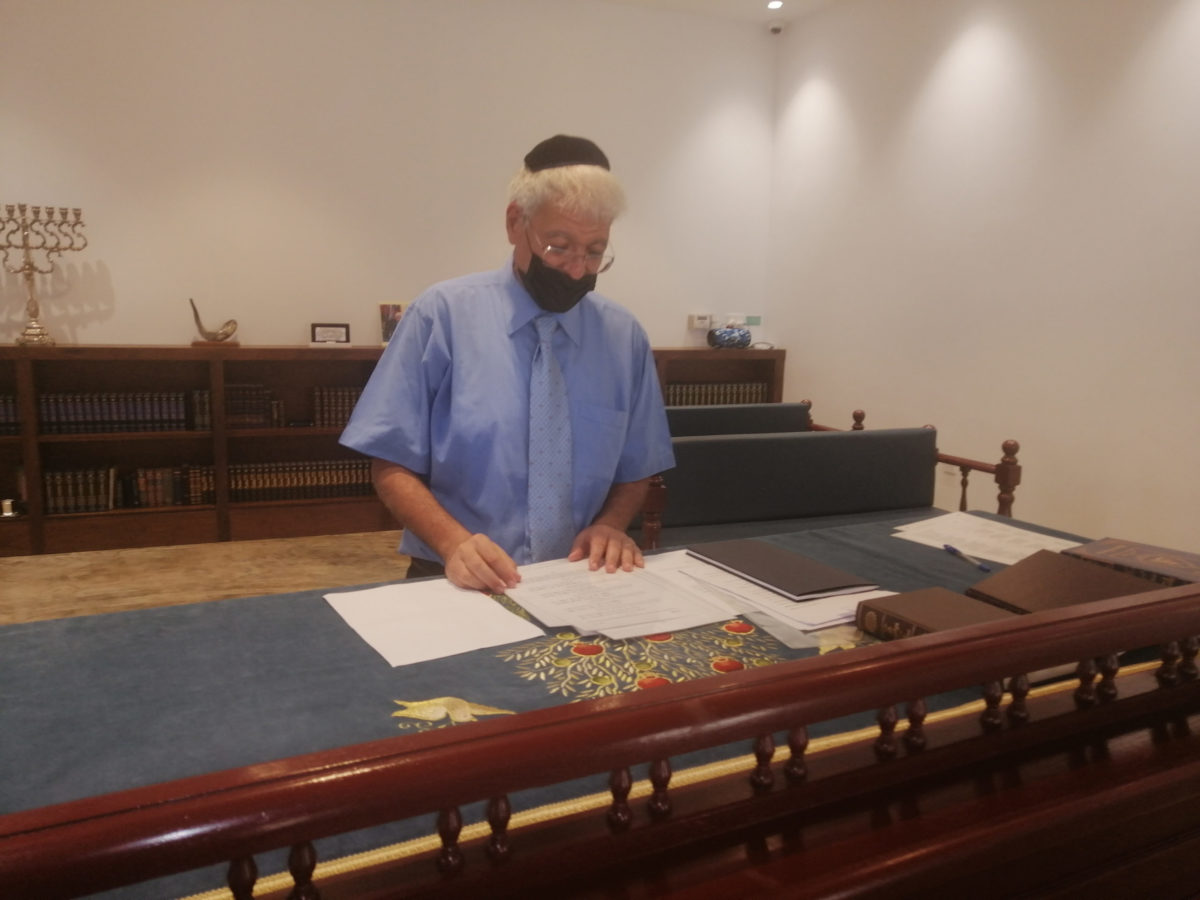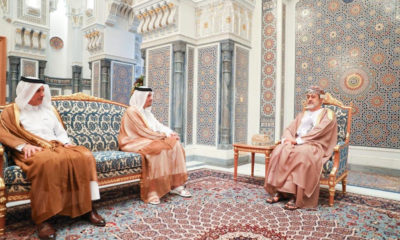
World

Abraham Accords, one year on
Published
3 years agoon
By
Paula SlierThis week a year ago, Ebrahim Dahood Nonoo switched on his television set and like the rest of the world, heard the surprise announcement that Bahrain, a tiny country of 33 islands situated between the Qatari peninsula and the north eastern coast of Saudi Arabia, was making peace with Israel.
Nonoo was stunned. As head of the Bahraini Jewish community that comprises only 36 Jews, he had no idea what had been happening behind closed doors.
“For me it came out of the blue,” he says while we walk through the local souk (marketplace) where his grandfather sold spices after arriving from Iraq in the early 1900s. The tiny shops on the cobbled streets all advertise the same clothing, spices, and antiques, regardless of what the pushy merchants claim as we walk past.
“We knew the United Arab Emirates (UAE) was signing peace with Israel and that was a huge step forward,” smiles Nonoo.
“We were thinking, ‘Oh G-d, is it going to be us next?’ But we didn’t know. And then, of course, after it was announced, all the newspapers wanted to know more details and I went to the foreign minister and said to him, ‘Listen, they’re all asking us to give information. So what do you want us to do?’ He said, ‘Well, just tell them whatever you want.’”
Just two days after the announcement, a signing ceremony was held at the White House.
Israel, the United States (US), the UAE, and Bahrain signed the historic Abraham Accords in which the latter two recognised, for the first time, the state of Israel and set about normalising diplomatic relations with her.
Later, two other Arab nations, Sudan and Morocco, followed suit and joined the Accords, raising the number of Arab states with formal diplomatic ties to Israel from two to six.
The Abraham Accords weren’t just a diplomatic victory. They opened up collaboration on tourism, trade, technology, and more. But because they were a foreign policy win for former American president, Donald Trump, his successor, Joe Biden, didn’t exactly call attention to this year’s anniversary. In fact, the current US administration’s spokesperson has never used the term “Abraham Accords”.
Trump predicted at this time last year that about five more Gulf countries would sign similar normalisation agreements with Israel in the ensuing months. Although this hasn’t happened – nor is it expected to any time soon – the good news is that experts agree the inked deals, at least, are here to stay.
“For more than 70 years we have been in a state of no war, no peace, stagnation,” says Dr Shaikh Khalid bin Khalifa Al Khalifa, the chairperson of the King Hamad Global Centre for Peaceful Coexistence in Bahrain. We meet in his air-conditioned office where he regales me with stories about his first visit to Israel at the end of last year.
“This is a historic moment for us. My generation has wasted time with hatred, wars, and violence, as everyone knows. People in Bahrain have changed in recent years. If you mentioned Israelis 20 years ago, it would evoke war, violence, and hatred. Today it’s different.”
Al Khalifa insists most Bahrainis support the deal in spite of the Palestinians claiming to feel betrayed.
“We really have to end it. There’s no way that we can continue living in a state where we aren’t really in a war with Israel and we aren’t at peace. It should have been done years ago, especially as we in Bahrain have no enmity with Judaism as a religion. For us, the Christians, Jews, and Muslims are one,” says Al Khalifa.
Bahrain’s Jewish community is one of the smallest in the world although its origins date back more than a century. Arabic sources record Jews living in the area at the time of the Islamic conquest in 630 CE.
Nonoo, sporting a black yarmulke, meets me at the souk at midday. It’s the worst time to visit as the temperature has climbed to 45 degrees Celsius and most prospective shoppers have gone home to return later in the evening. But as soon as they notice Nonoo, there’s a lot of “Salaam alaikum” and back-slapping.
“This is where commerce started in Bahrain,” he tells me, pausing to sip some dark Arabic coffee. “All these little shops sold mostly materials and Jews were very good at that. Many of the first Jews who came here, came from Iraq looking for opportunities. They had an edge because they were able to transact with suppliers from across Europe. They would take container loads of goods and sell them and pay the suppliers back later. There was so much Jewish participation in the market that on Saturdays, everything closed here for Shabbat. Even the local Bahrainis, the Muslims and Christians, used to close.”
Since the 2000s, Bahrain has had quiet relations with Israel and especially the local pro-Israel community didn’t need a lot of convincing to buy into the Accords. But several Bahrainis I talk to, off record, and who ask not to be named, say they are still suspicious of Israel and any peace agreement.
“You can’t expect us to change our views overnight,” one university student proclaims. “There’s still the occupation and Israel continues to build settlements on Palestinian land!”
But while there might be anti-Israel sentiment in some quarters, albeit the minority, Nonoo insists that antisemitism has never been a problem in the country. It’s a view echoed by everyone I meet. And Nonoo’s grandfather?
“If he was alive today, he wouldn’t believe that something like the Abraham Accords could happen. It’s absolutely amazing,” his grandson declares!
- Paula Slier is the Middle East bureau chief of RT, the founder and chief executive of Newshound Media International, and the inaugural winner of the Europcar Women in Leadership Award of the Absa Jewish Achiever Awards.








